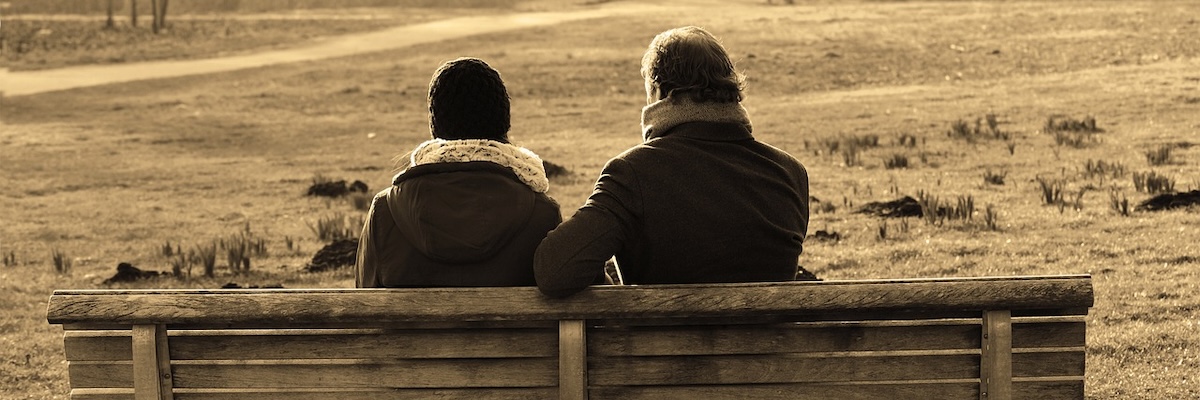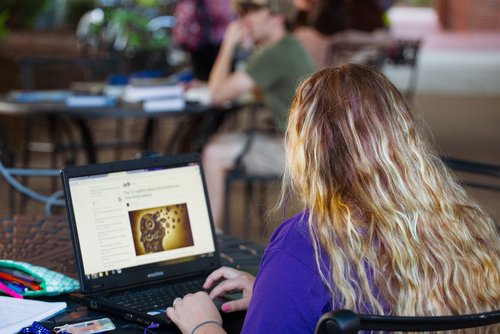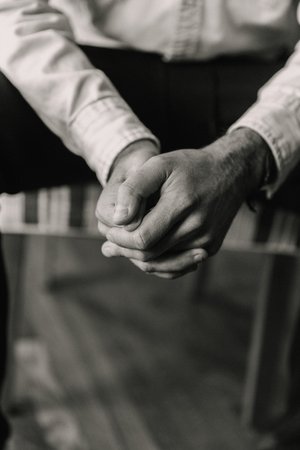In a world striving for inclusivity and acceptance, the role of a queer ally is more crucial than ever. The journey towards becoming a true ally involves understanding, empathy, and action. But who can step into this role? The answer may surprise you. Join us as we explore the diverse faces of queer allies, their roles, responsibilities, and the impact they have on society. Let’s delve into the depths of queer identity and allyship, and discover how each one of us has the power to make a difference. Welcome to the conversation on ‘Who Can Be a Queer Ally?’
Understanding Queer Identity and Allyship
Queer identity encompasses a wide spectrum of sexual orientations and gender identities that fall outside of the societal norms of heterosexuality and cisgender. It is important for allies to have a comprehensive understanding of queer identity to effectively support and advocate for the LGBTQ+ community.
Defining Queer Identity:
- Exploring the term “queer” and its evolution.
- Understanding the diverse range of sexual orientations and gender identities within the queer community.
- Recognizing the fluidity and intersectionality of queer identities.
LGBTQ+ Terminology:
- Familiarizing ourselves with key terms such as LGBTQ+, LGBTQIA+, cisgender, transgender, non-binary, and more.
- Avoiding assumptions and stereotypes by using inclusive and respectful language.
Historical Context:
- Examining the historical struggles and milestones of the LGBTQ+ rights movement.
- Understanding the impact of societal and legal discrimination on queer individuals.
- Recognizing the ongoing fight for equality and the importance of allyship in this context.
Intersectionality:
- Exploring how LGBTQ+ identities intersect with race, ethnicity, class, religion, disability, and other social factors.
- Understanding the unique challenges faced by queer individuals who belong to marginalized communities.
- Emphasizing the importance of intersectional allyship.
Privilege and Allyship:
- Acknowledging one’s own privilege and the ways it can intersect with queer identity.
- Understanding the responsibility of allies to leverage their privilege for the benefit of the LGBTQ+ community.
- Examining the concept of allyship as an ongoing learning process.
By deepening our understanding of queer identity and the complexities of LGBTQ+ experiences, we can lay a strong foundation for effective allyship. Let’s move forward to explore the roles and responsibilities of a queer ally in the next section.
Roles and Responsibilities of a Queer Ally
Being a queer ally goes beyond simply expressing support. It involves actively engaging in actions that promote inclusivity, equality, and understanding. In this section, we will explore the roles and responsibilities that come with being a queer ally.
Recognizing and Acknowledging Privilege:
- Understanding the privilege that comes with being heterosexual and cisgender.
- Recognizing the ways in which privilege can impact personal biases and attitudes towards the LGBTQ+ community.
- Acknowledging the importance of using privilege to amplify queer voices and experiences.
Educating Oneself About LGBTQ+ Issues:
- Committing to ongoing education about LGBTQ+ history, terminology, and current issues.
- Seeking out resources like books, articles, documentaries, and podcasts to deepen knowledge and understanding.
- Engaging in conversations with LGBTQ+ individuals to gain personal insights and perspectives.
Promoting Equality and Inclusion:
- Challenging and dismantling heteronormative and cisnormative attitudes and behaviors in personal and professional settings.
- Advocating for LGBTQ+ rights and policies that promote equality and non-discrimination.
- Creating safe spaces that respect and embrace diverse sexual orientations and gender identities.
Supporting LGBTQ+ Individuals:
- Being a reliable and empathetic source of support for LGBTQ+ friends, family members, or colleagues.
- Listening without judgment and validating their experiences.
- Offering assistance and resources when needed, such as connecting them with LGBTQ+ organizations or support groups.
Amplifying Queer Voices:
- Using platforms, both online and offline, to amplify the voices and experiences of LGBTQ+ individuals.
- Sharing their stories, achievements, and challenges to promote understanding and empathy.
- Actively promoting queer artists, activists, and organizations through social media, events, and other channels.
By embracing these roles and responsibilities, queer allies play a vital role in creating a more inclusive and accepting society. In the next section, we will explore how individuals can embark on the journey of becoming a queer ally.
How to Become a Queer Ally
Becoming a queer ally is a process of self-discovery, education, and action. It requires a genuine commitment to learning, growing, and actively supporting the LGBTQ+ community. In this section, we will explore practical steps that individuals can take to become effective queer allies.
Self-Education About Queer Issues:
- Start by educating yourself about LGBTQ+ history, terminology, and the challenges faced by the community.
- Read books, articles, and online resources written by LGBTQ+ authors and activists.
- Engage in self-reflection to examine personal biases and assumptions.
Attending LGBTQ+ Events and Workshops:
- Participate in LGBTQ+ events, such as pride parades, rallies, and community gatherings.
- Attend workshops and seminars on queer issues to deepen your understanding and gain practical knowledge.
- Listen to guest speakers and engage in discussions to broaden your perspective.
Standing Up Against Discrimination:
- Challenge and confront discriminatory language, jokes, or behavior when you encounter them.
- Speak up for LGBTQ+ individuals in situations where they may not be able to advocate for themselves.
- Support policies and initiatives that promote equality and protect LGBTQ+ rights.
Supporting Queer Friends and Family:
- Be a supportive and understanding presence for queer friends and family members.
- Validate their experiences and offer a listening ear without judgment.
- Educate yourself about the specific challenges they may face and offer your assistance and resources.
Building Alliances and Connections:
- Seek out LGBTQ+ organizations, support groups, and community centers in your area.
- Attend meetings or join online forums where you can connect with other allies and LGBTQ+ individuals.
- Collaborate with local organizations to support their initiatives and contribute to positive change.
Remember, becoming a queer ally is an ongoing journey. It requires continuous learning, self-reflection, and actively practicing inclusive behavior. By taking these steps, you can make a meaningful impact and contribute to a more inclusive society. In the next section, we will explore the challenges that queer allies may face and how to overcome them.
Challenges Faced by Queer Allies
While the journey of being a queer ally is rewarding, it is not without its challenges. Understanding and navigating these challenges is essential for allies to continue their support and advocacy for the LGBTQ+ community. In this section, we will explore some common challenges faced by queer allies and provide strategies to overcome them.
Understanding and Overcoming Biases:
- Recognize that everyone carries biases, including allies. Reflect on personal biases and prejudices towards LGBTQ+ individuals.
- Engage in self-awareness and educate yourself about the root causes of these biases.
- Challenge and actively work to overcome these biases through exposure to diverse perspectives and experiences.
Dealing with Backlash:
- Being an ally may invite criticism, backlash, or even personal attacks from individuals who hold discriminatory views.
- Stay resilient and seek support from other allies, LGBTQ+ organizations, or support groups.
- Educate yourself about effective strategies for responding to backlash while maintaining your composure and promoting respectful dialogue.
Maintaining Commitment:
- Allyship requires ongoing commitment and dedication. It can be challenging to sustain this level of involvement over time.
- Set realistic goals and expectations for yourself as an ally.
- Find ways to stay motivated, such as attending LGBTQ+ events, reading personal stories, or connecting with other allies.
Addressing Intersectionality:
- Recognize that LGBTQ+ individuals may face additional challenges due to their intersectionality with other identities, such as race, ethnicity, or disability.
- Educate yourself about intersectionality and actively work to address the unique experiences of LGBTQ+ individuals who belong to marginalized communities.
- Amplify and support LGBTQ+ voices from diverse backgrounds.
Navigating Privilege:
- Allies often possess various forms of privilege, such as being cisgender or heterosexual.
- Continuously reflect on your privilege and how it may impact your role as an ally.
- Use your privilege to create opportunities for marginalized voices to be heard and empower LGBTQ+ individuals.
By acknowledging and addressing these challenges, allies can become more effective in their support for the LGBTQ+ community. It is through perseverance and a commitment to growth that we can overcome these obstacles and create meaningful change. In the next section, we will explore the impact of queer allies on society.
Impact of Queer Allies on Society
The impact of queer allies on society cannot be overstated. By actively engaging in support, advocacy, and education, allies play a crucial role in shaping a more inclusive and accepting world for the LGBTQ+ community. In this final section, we will explore the various ways in which queer allies make a positive impact on society.
Spreading Awareness:
- Allies contribute to raising awareness about LGBTQ+ issues and challenges faced by the community.
- Through conversations, social media, and public platforms, allies help to educate others and foster understanding.
- By sharing personal experiences and stories, allies humanize the LGBTQ+ experience and challenge stereotypes.
Influencing Policy Changes:
- Queer allies play a vital role in advocating for LGBTQ+ rights and influencing policy changes at local, national, and international levels.
- By supporting and participating in activism efforts, allies contribute to the advancement of equal rights and protections.
- Allies’ voices carry weight in political discussions, helping to shape policies that promote inclusivity and non-discrimination.
Creating Safe Spaces:
- Allies actively work to create safe spaces where LGBTQ+ individuals can express themselves without fear of judgment or discrimination.
- This can be done through initiatives such as LGBTQ+-friendly workplaces, educational institutions, and community centers.
- Allies contribute to fostering an environment where LGBTQ+ individuals feel valued, respected, and supported.
Promoting Acceptance and Understanding:
- Allies challenge societal norms and prejudices by promoting acceptance and understanding of diverse sexual orientations and gender identities.
- Through their actions and words, allies encourage others to question their biases and embrace LGBTQ+ individuals as equals.
- Allies foster a culture of empathy, respect, and celebration of diversity.
By actively engaging in these ways, queer allies contribute to a more inclusive society where LGBTQ+ individuals can live authentically and without fear of discrimination. Each ally’s individual efforts collectively create a powerful ripple effect that paves the way for a brighter and more accepting future.
As we conclude our exploration of “Who Can Be a Queer Ally?”, we hope that this comprehensive guide has inspired you to embrace the role of an ally and take meaningful action in supporting the LGBTQ+ community. Together, we can create a world where everyone is celebrated and accepted for who they are.


















